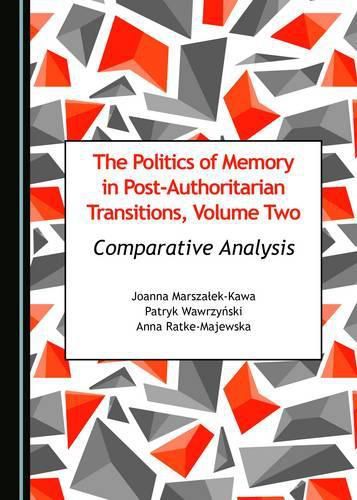Readings Newsletter
Become a Readings Member to make your shopping experience even easier.
Sign in or sign up for free!
You’re not far away from qualifying for FREE standard shipping within Australia
You’ve qualified for FREE standard shipping within Australia
The cart is loading…






History is a powerful tool in the hands of politicians, and can be a destructive weapon, as power over the past is the power to decide who is a hero and who is a traitor. Tradition, the remembrance of ancestors, experiences of previous generations are keys that unlock the doors to citizens’ minds, and allow certain ideas, visions and political programs to flourish. However, can history be a proper political weapon during democratization processes when the past is decisively divided from the present? Are the new order and society founded on the basis of some interpretation of the past, or, rather, are they founded only with reference to the imagined future of the nation?This book explores such questions through a detailed description of the use of remembrance policies during political transformations. It discusses how interpretations of the past served the realization of transitional objectives in countries as varied as Chile, Estonia, Georgia, Poland, South Africa and Spain. The book is a unique journey through different parts of the world, different cultures and different political systems, investigating how history was remembered and forgotten by certain democratic leaders. Individual chapters discuss how governments’ remembrance policies were used to create a new citizen, to change a political culture, and to justify a vision of society promoted by new elites. They explain why some sore topics were avoided by politicians, and why sometimes there was no transitional justice or punishment of leaders of the authoritarian state. The book will be of interest to anyone wishing to explore policies of remembrance, democratization, and the role of memory in contemporary societies.
$9.00 standard shipping within Australia
FREE standard shipping within Australia for orders over $100.00
Express & International shipping calculated at checkout
History is a powerful tool in the hands of politicians, and can be a destructive weapon, as power over the past is the power to decide who is a hero and who is a traitor. Tradition, the remembrance of ancestors, experiences of previous generations are keys that unlock the doors to citizens’ minds, and allow certain ideas, visions and political programs to flourish. However, can history be a proper political weapon during democratization processes when the past is decisively divided from the present? Are the new order and society founded on the basis of some interpretation of the past, or, rather, are they founded only with reference to the imagined future of the nation?This book explores such questions through a detailed description of the use of remembrance policies during political transformations. It discusses how interpretations of the past served the realization of transitional objectives in countries as varied as Chile, Estonia, Georgia, Poland, South Africa and Spain. The book is a unique journey through different parts of the world, different cultures and different political systems, investigating how history was remembered and forgotten by certain democratic leaders. Individual chapters discuss how governments’ remembrance policies were used to create a new citizen, to change a political culture, and to justify a vision of society promoted by new elites. They explain why some sore topics were avoided by politicians, and why sometimes there was no transitional justice or punishment of leaders of the authoritarian state. The book will be of interest to anyone wishing to explore policies of remembrance, democratization, and the role of memory in contemporary societies.